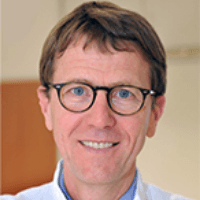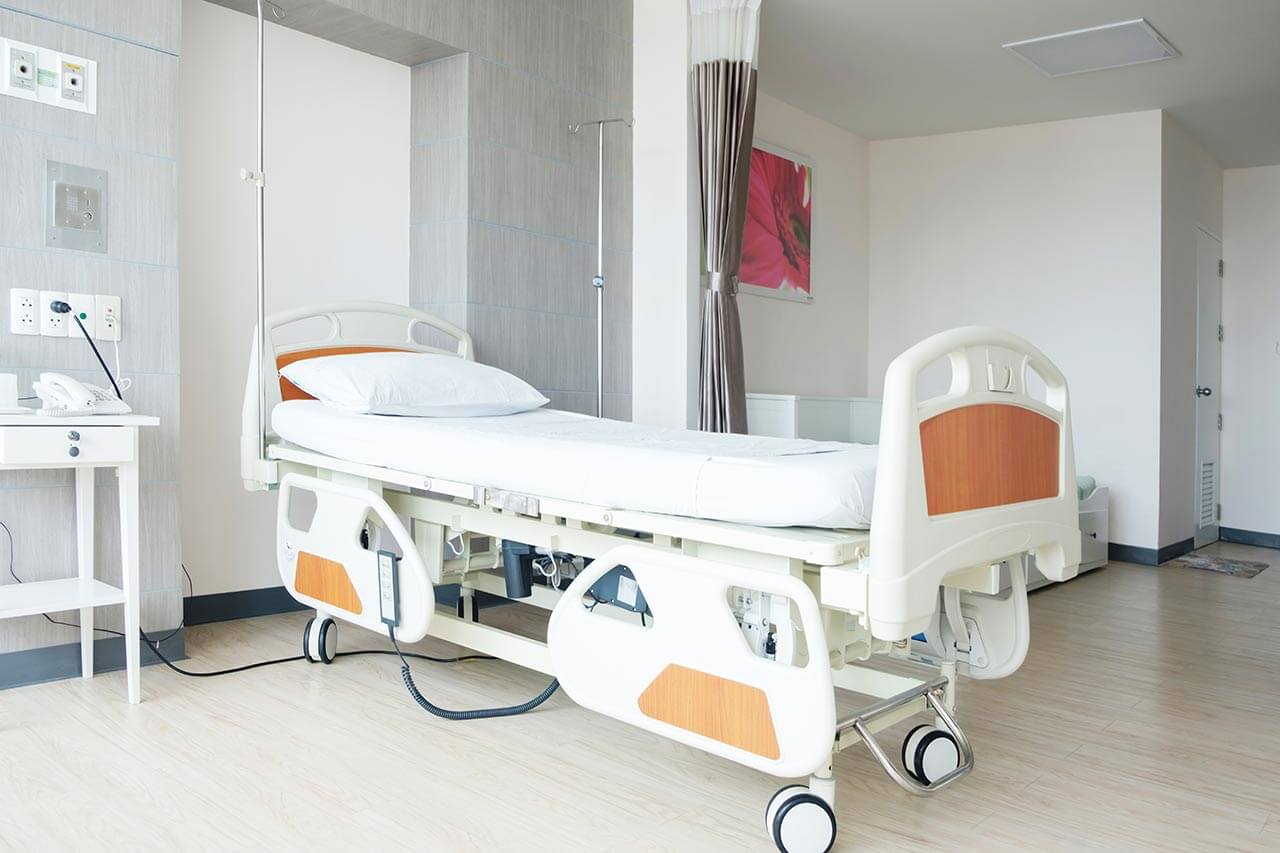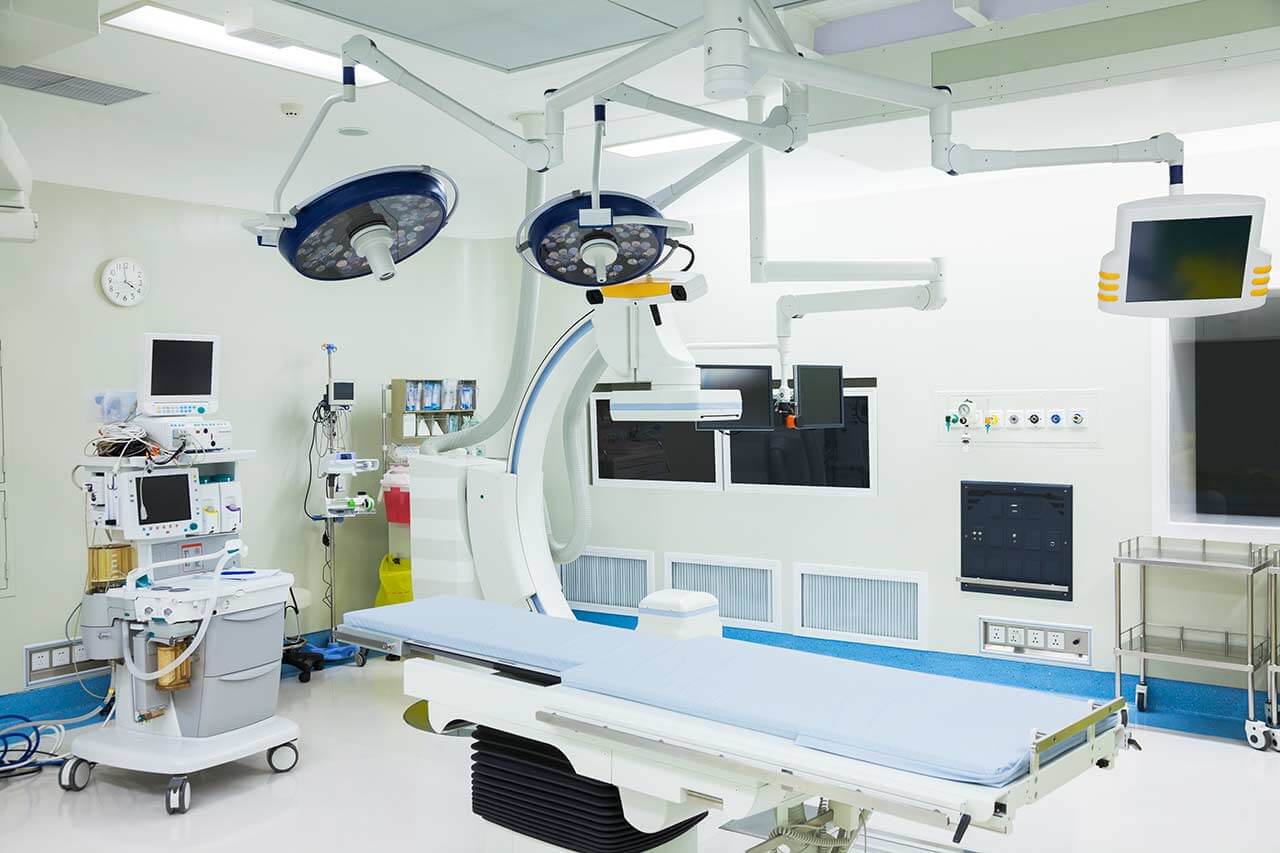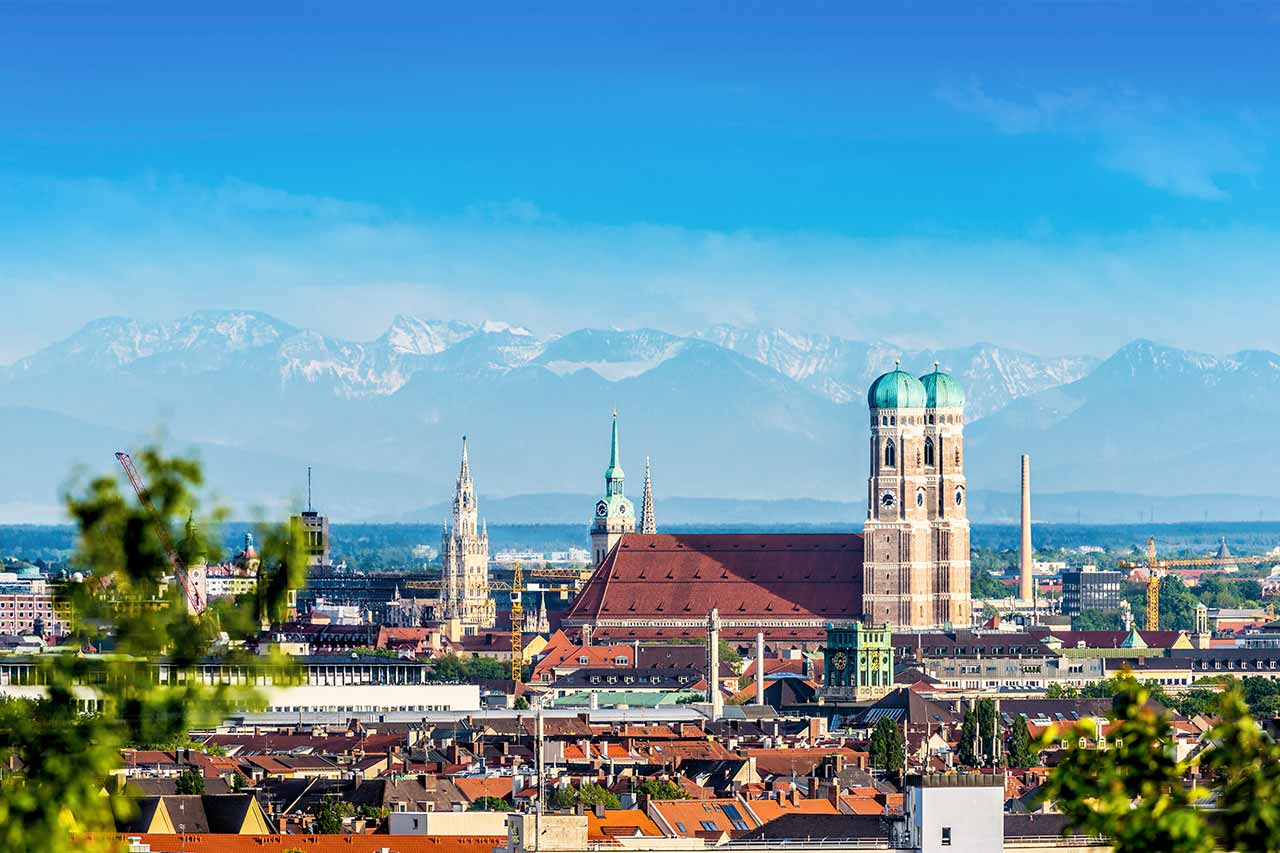
The program includes:
- Initial presentation in the clinic
- clinical history taking
- review of medical records
- physical examination
- laboratory tests:
- complete blood count
- biochemical analysis of blood
- thyroid function test (TSH-basal, fT3, fT4)
- mineral metabolism analysis (Na, K, Ca, Mg)
- lipid metabolism (HDL/LDL, cholesterol, triglycerides,
Lip(a), homocysteine) - iron content (ferritin, iron)
- blood coagulation analysis (aPTT, PT, INR)
- metabolic status (uric acid, total glucose, HbA1c)
- inflammatory parameters (CRP, ESR)
- cardiovascular disease risk markers
- vascular system assessment
- lung function test (Spirometry)
- resting and exercise ECG
- vessel elasticity measurement
- body fat and water examination
- color doppler echocardiography
- color doppler sonography of cerebral vessels
- measurement of arterial blood pressure electrocardiogram
- Holter monitoring (24h)
- preparation according to preoperative standard
- implantation of cardioverter- defibrillator
- symptomatic treatment
- control examinations
- the cost of essential medicines and materials
- nursing services
- full hospital accommodation
- explanation of future recommendations
Required documents
- Medical records
- ECG (if available)
Service
You may also book:
 BookingHealth Price from:
BookingHealth Price from:
About the department
The Department of Cardiology at the German Heart Center Munich diagnoses and treats the full range of diseases of the heart and circulatory system. The department specializes in treating inflammatory diseases of the heart and large blood vessels, heart arrhythmias, and heart valve pathologies, as well as heart failure and arterial hypertension. The very latest catheter-based technologies are used in the diagnostics and treatment, which, in many cases, allow a patient to avoid traumatic surgical treatment. The specialists at the medical facility also admit patients with acute coronary syndrome. The department has a Chest Pain Unit certified in accordance with the requirements of the German Cardiac Society (DGK) to treat such patients. Cardiologists cooperate closely with cardiac surgeons, thanks to which the specialists jointly develop the most effective treatment regimens. The department ranks among the largest Heart Centers in Europe and employs brilliant professionals with long clinical experience.
The Head Physician of the department is Prof. Dr. med. Heribert Schunkert. The professor is known as a leading specialist in cardiology. He regularly demonstrates high treatment success rates, is a member of national and international professional societies, and is the winner of many prestigious awards and prizes.
One of the most important department's tasks is non-surgical treatment of coronary artery stenosis. The department's specialists have vast experience in balloon dilatation, which allows patients to restore the patency of blood vessels and is also used during stent implantation. The department uses the latest drug-eluting and bioresorbable stents, which help patients avoid recurrent stenosis. Furthermore, the department performs balloon dilatation and stent implantation into the blood vessels of the neck and the arteries of the lower limbs.
Another important focus of the department's work is the treatment of heart valve defects in a special Cardiac Catheterization Laboratory (hybrid operating room). Since 2007, the department's team has been performing aortic valve replacement through a transfemoral approach, in which the heart valve is placed through one of the inguinal arteries. The decision on the optimal treatment method (for example, using a balloon-expandable or self-expanding stent) is made based on the anatomical and functional features of the patient's blood vessels. Thus, an individual plan is developed for each patient that ensures the best treatment outcomes.
The team of the department's doctors successfully copes with arrhythmia treatment. The department's doctors often implant pacemakers with a defibrillator function to eliminate life-threatening heart arrhythmias. When treating atrial fibrillation (one of the most common heart arrhythmias), good results can be achieved with radiofrequency catheter ablation.
The department is one of the most successful research centers in Germany. The main areas of scientific activity are acute coronary syndrome (unstable angina and myocardial infarction), heart arrhythmias, and the study of molecular biological and genetic markers of heart pathologies. The latest advances are quickly introduced into clinical practice, thanks to which the medical services provided are at the most modern scientific level.
The department offers the following therapeutic options:
- Treatment of coronary heart disease
- Optimization of interventional treatment of myocardial infarction
- Optimization of drug therapy for acute coronary syndrome
- Revascularization for complex coronary heart disease
- Treatment of heart arrhythmias
- Catheter ablation for atrial fibrillation and ventricular tachycardia
- Implantation of pacemakers and cardioverter-defibrillators
- Catheter-based closure of the atrial appendage for stroke prevention
- Treatment of heart valve pathologies
- Interventional heart valve replacement
- Interventional treatment for mitral valve stenosis and insufficiency
- Transcatheter aortic valve replacement (TAVI)
- MitraClip procedure for mitral valve insufficiency
- Treatment of heart failure
- Drug therapy for heart failure
- Cardiac resynchronization therapy
- Mechanical heart support systems (in cooperation with the Department of Cardiac Surgery)
- Treatment of structural heart disease
- Catheter-based therapy for hypertrophic obstructive cardiomyopathy
- Treatment of hereditary heart disease
- Family consultations for congenital heart rhythm disturbances, myocardial diseases, and coronary heart disease
- Molecular cardiology: detection of genetic causes of myocardial infarction
- Treatment of circulatory disorders/hypertension
- Catheter-based treatment for vascular pathologies of the neck, upper and lower limbs
- Renal nerve destruction to treat severely controlled hypertension (renal denervation)
- Treatment of other heart disease
Curriculum vitae
Higher Education and Professional Career
- 1978 - 1985 Medical studies, RWTH Aachen University.
- 1985 - 1988 Research Fellow in the Department of Internal Medicine II at the University Hospital RWTH Aachen.
- 1986 Thesis defense, RWTH Aachen University.
- 1991 - 1994 Research Fellow in the Department of Internal Medicine II at the University Hospital Regensburg.
- 1993 Board certification in Internal Medicine.
- 1994 Habilitation in Internal Medicine, University of Regensburg.
- 1995 Board certification in Cardiology.
- 1996 - 1997 Research Fellow, Department of Interventional Cardiology, Cardiac Catheterization Laboratory, Massachusetts General Hospital, Harvard Medical School, Boston, USA.
- 1994 - 1999 Senior Physician in the Department of Internal Medicine II at the University Hospital Regensburg.
- 2000 - 2002 Managing Senior Physician in the Department of Internal Medicine II at the University Hospital Regensburg.
- 2002 - 2003 Acting Head of the Department of Internal Medicine II, Visiting Professor for Cardiology and Angiology, University Hospital Schleswig-Holstein, Campus Luebeck.
- 2003 - 2012 Head of the Department of Internal Medicine II at the University Hospital Schleswig-Holstein, Campus Luebeck.
- Since 2012 Head of the Department of Cardiology at the German Heart Center Munich, Full Professor at the Technical University of Munich.
Memberships in Editorial Boards
- Circulation Cardiovascular Genetics.
- European Heart Journal.
- Clinical and Experimental Hypertension.
- Cardiovascular Drugs and Therapy.
- Basic Research in Cardiology.
- Journal of Molecular Medicine.
- Cardiovasc.
- Pharmacogenetics and Genomics.
- J. Hypertension.
- PLoS ONE.
Peer Review Activities
- German Research Foundation.
- European Society of Cardiology.
- British Heart Foundation.
- Nederlandse Hartstichting.
- German Heart Foundation.
- Novartis Foundation.
- New England Journal of Medicine.
- Nature.
- Nature Genetics.
- Circulation.
- European Heart Journal
Memberships in Professional Societies
- 1991 German Society of Internal Medicine.
- 1994 German Society for Cardiovascular Research.
- 1994 International Society of Hypertension.
- 1995 Working Group "Cardiovascular Molecular Biology and Genetic Engineering" of the German Society of Cardiology, 2 years as a Speaker.
- 2002 German Society for Hypertension, Section Science.
- 2004 - 2010 Board Member of the German High Pressure League.
- 2006 - 2011 Coordinator of the EU Cardiogenetics Consortium.
- Since 2008 Coordinator of the BMBF-NGFN Consortium on Atherogenomics.
- Since 2008 Member of the Supervisory Board of the University Hospital Regensburg.
- 2008 - 2011 Member of the Project Committee of NGFN-Plus and NGFN-Transfer in the Program of Medical Genome Research.
- Since 2011 Member of the German Center for Cardiovascular Research.
Prizes, Awards, and Honors
- 1993 Research Scholarship from the Sandoz Foundation for Therapeutic Research.
- 1994 Walter Clawiter Prize from the University of Duesseldorf.
- 1995 Ernst von Leyden Memorial Medal from the Berlin Society for Internal Medicine.
- 1995 Heisenberg Scholarship from the German Research Foundation.
- 2001 Arthur Weber Prize from the German Society of Cardiology.
- 2001 Science Prize from the German Society for Prevention and Rehabilitation.
- 2001 Science Prize for Obesity Research from the German Society for Hypertension.
- 2011 Honorary Award Lecture on Prevention of the German Cardiac Society – Cardiovascular Research.
- 2013 Franz Gross Science Prize from the German Hypertension League.
- 2015 2015 Silver Order of Merit in Cardiovascular Research from the German Cardiac Society.
Photo of the doctor: (c) Deutsches Herzzentrum München
About hospital
The German Heart Center Munich is a specialized medical facility for treating cardiovascular diseases in patients of all ages that combines long traditions, unique experience, and the highest level of competence among doctors. The center began its work in 1972 and, during that time, became the etalon Heart Center at the international level. In addition, the center became the first specialized cardiological medical facility in Europe.
The center's highly professional team of doctors effectively treats heart pathologies, including coronary artery and heart valve diseases, heart defects in adults and children, heart rhythm disturbances, and other cardiovascular pathologies. The specialists carry out conservative treatment, perform low-traumatic interventional procedures, minimally invasive surgeries, and the most complex open interventions. The center has state-of-the-art diagnostic equipment to comprehensively examine the heart and develop an optimal treatment regimen.
The integration of all related fields required for making an accurate diagnosis and providing comprehensive and effective therapy for cardiovascular pathologies within a single center is the fundamental principle of successful clinical activities. The center is subordinate to the Bavarian State Ministry of Sciences, Research and the Arts. In addition, the medical facility operates on the basis of the Hospital of Munich Technical University, which provides access to the very latest advances in cardiology and cardiac surgery.
The center's medical team believes that its primary purpose is the provision of optimal cardiological and cardiac surgical care to children, adolescents, and adults in accordance with advanced medical knowledge, as well as the introduction into clinical practice of their own innovative developments and achievements of their partners.
Photo: (с) depositphotos
Accommodation in hospital
Patients rooms
The patients of the German Heart Center Munich live in single and double patient rooms with a modern design. Each patient room has an ensuite bathroom with a shower and a toilet. The standard room furnishings include a comfortable and automatically adjustable bed, a bedside table, a wardrobe for storing clothes, a TV, and a radio. The phone is not available in all patient rooms, but the center has a telephone set that can be used at any time. The center also offers free access to Wi-Fi. The pediatric departments have patient rooms designed for the accommodation of young patients with one of their parents, as well as modern playrooms.
Meals and Menus
The patients undergoing their treatment in the center are offered three tasty and varied meals a day: breakfast, lunch, and dinner. If, for some reason, you do not eat all the food, you will be offered an individual menu.
The center also houses a cafeteria where one can have a snack or enjoy hot and cold drinks. The range also includes newspapers, magazines, and items for everyday needs.
Further details
Standard rooms include:
Accompanying person
Your accompanying person may stay with you in your patient room or at the hotel of your choice during the inpatient program.
Hotel
You may stay at the hotel of your choice during the outpatient program. Our managers will support you for selecting the best option.




